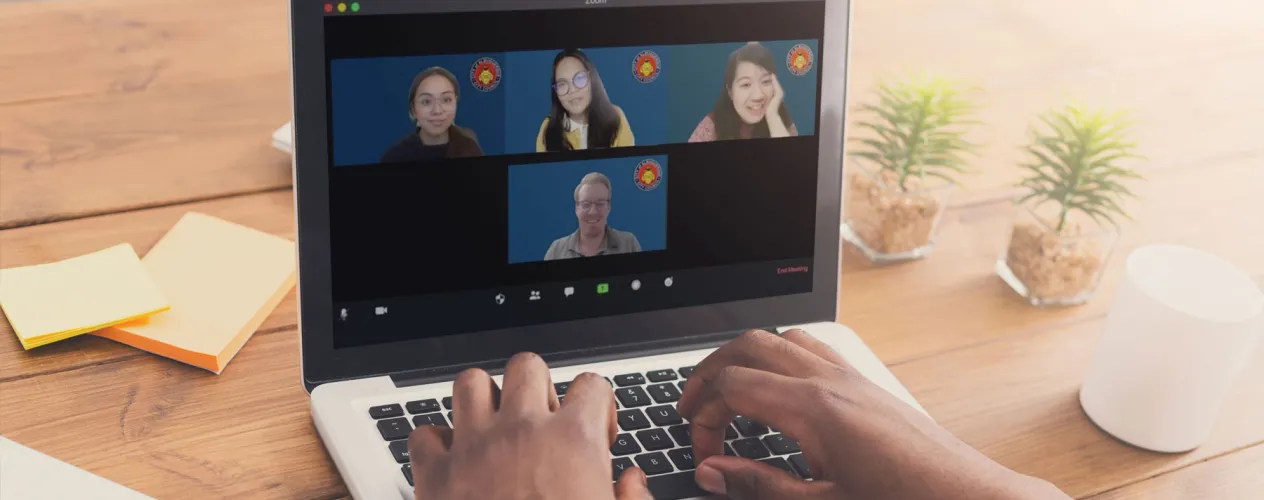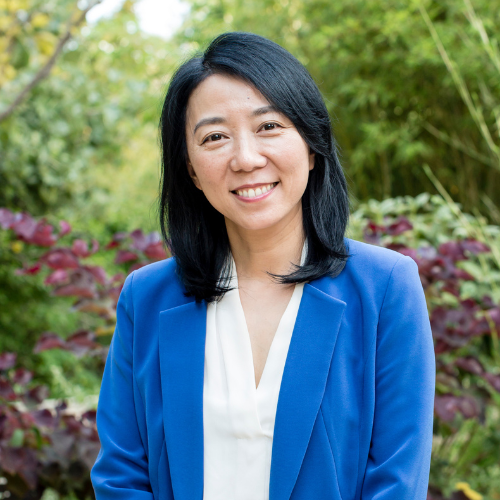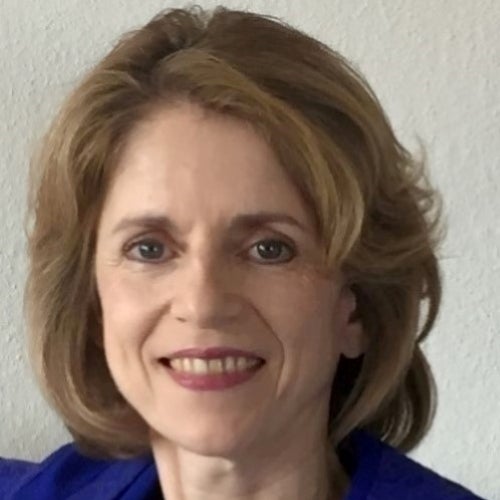Teaching Moments
The UCLA Fielding School’s PH 200 course, which started in 2019, introduces first-year MPH students to the fundamentals of public health through a case-based approach that addresses real-world topics through the lens of the school’s five departments.

When students enter the UCLA Fielding School of Public Health for their MPH education, they choose one of five academic departments: Biostatistics, Community Health Sciences, Environmental Health Sciences, Epidemiology, and Health Policy and Management. But the multidisciplinary nature of public health demands that no matter what the area of focus, the successful professional be well versed in all five.
“When our MPH graduates get public health jobs, they don’t work in silos,” says Dr. Yifang Zhu, professor of environmental health sciences and senior associate dean for academic programs at the UCLA Fielding School. “They collaborate with colleagues and need to be able to speak the language of people in other public health disciplines, and appreciate the perspectives public health professionals in those disciplines bring to the table.”
The school’s desire to present first-year MPH students with an introduction to the foundations of public health from an integrated perspective — in which faculty representatives from each of the five departments teach on the same public health issues and students from each department work together to address them — provided the impetus for PH 200A and 200B, a course now taken by all MPH students in their first two quarters at FSPH. Designed by an interdepartmental faculty team, the curriculum is delivered through a mix of traditional lectures and active-learning, case-based classroom discussions and presentations.
Before the integrated core curriculum, which was first offered to students in the 2019-20 academic year, students took separate introductory courses from each department, with limited opportunity for interactions with students in other departments. “Previously, we received feedback from students and alumni that they would appreciate more opportunities to interact with students outside of their home department,” Zhu notes. “This course allows them to experience a wider range of perspectives, and to see how those perspectives come together in real-world public health scenarios."
“Our students are going to work in multidisciplinary teams in their careers, and so it’s very helpful to have them doing that from the beginning of their public health education,” says Dr. Karin Michels, professor and chair of FSPH’s Department of Epidemiology, who co-chaired the PH 200 series with Zhu in 2020-21. “And by working on a specific problem with students who have chosen other concentrations, they learn to appreciate other disciplines within public health.”
Michels estimates that about half of schools of public health use an integrated model to teach the foundations of the profession, but what differentiates the UCLA Fielding School’s approach from many others is the emphasis on case-based teaching. Each quarter, three case studies are introduced — for 2020-21, topics involved the trans-fat campaign in New York City, the Affordable Care Act, e-cigarettes, arsenic mitigation in Bangladesh, COVID-19, and climate change. For each case, one of the course’s five instructors serves as the lead and presents the background, and then each of the other instructors teaches on the salient issues from their vantage point.
As an example, for COVID-19, students learned from the biostatistics perspective about the design of vaccine trials and how to interpret the results, such as what it means to be 95% effective. They took in key epidemiological concepts used to monitor progress against the pandemic. From the community health sciences side, they explored the social determinants involved in which communities are most disadvantaged. They learned about the role of the environment in the transmission of the disease, and the importance of variables such as air pollution and masks. And from the health policy and management angle, they learned about considerations involved in the healthcare response, and in establishing policies for COVID-19 testing and vaccine prioritization. For the 2020-21 series, every case was taught through the lens of systemic racism.
“We’re framing the materials in a story,” Michels says. “For example, instead of explaining how you design a case-control study and what biases you look for, we first describe the problem and then discuss the types of studies you might design to resolve the problem, which allows the students to learn by doing.”
This course allows [students] to experience a wider range of perspectives, and to see how those perspectives come together in real-world public health scenarios.
At the end of each case, multidisciplinary teams of students present as if in a public health setting. In the climate change module, student teams played the role of stakeholders delivering input on the heat resiliency program they would recommend to a budget-strapped city council. “The students created video presentations that were highly polished, creative, and informative,” Zhu says. “It really added to the learning experience for everyone.”
“Most students enter FSPH with a good idea of what they want to study, and it becomes easy to stay within your department and around other like-minded people as you go through the MPH program,” says Consuela Abotsi-Kowu (MPH ’20), who was the lead teaching assistant for PH 200 in 2019-20 and full-time course coordinator in 2020-21. “The value of this course is that it brings students into spaces with others who don’t necessarily approach public health the way they do, and allows them to learn from each other as they tackle public health issues.”
Abotsi-Kowu says an added benefit, particularly given that the 2020-21 course was delivered over Zoom, was that it fostered communication among new FSPH students, both during the group projects and in the chat function of the online platform. Through frequent interactions involving students from disparate locations — including some who were abroad — a sense of community was forged.
“As a new student, despite being on Zoom, the group projects, breakout rooms, and office hours in PH 200 provided opportunities to connect with professors and students across FSPH departments early on in the program,” says Geneva Vogelheim, an MPH student in the Department of Health Policy and Management. “In addition, the case format allowed us to apply lectures to real-world public health issues and understand how each of our disciplines work together to provide solutions.”

